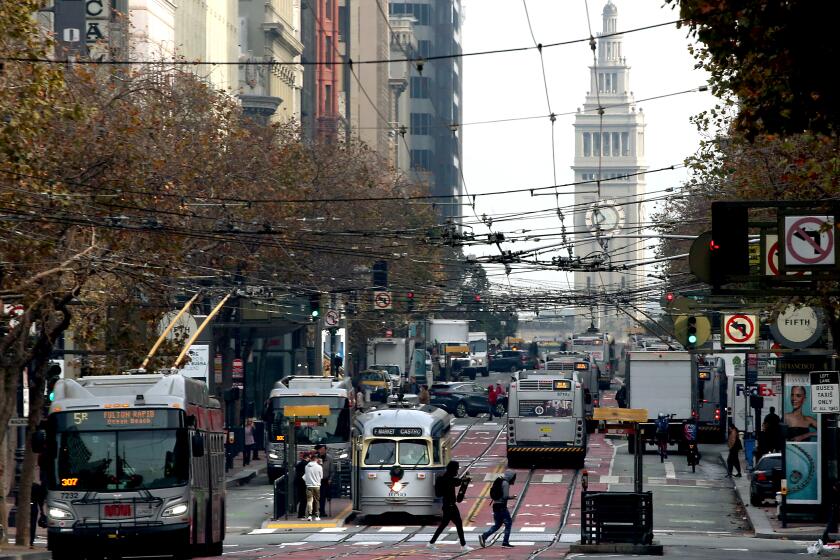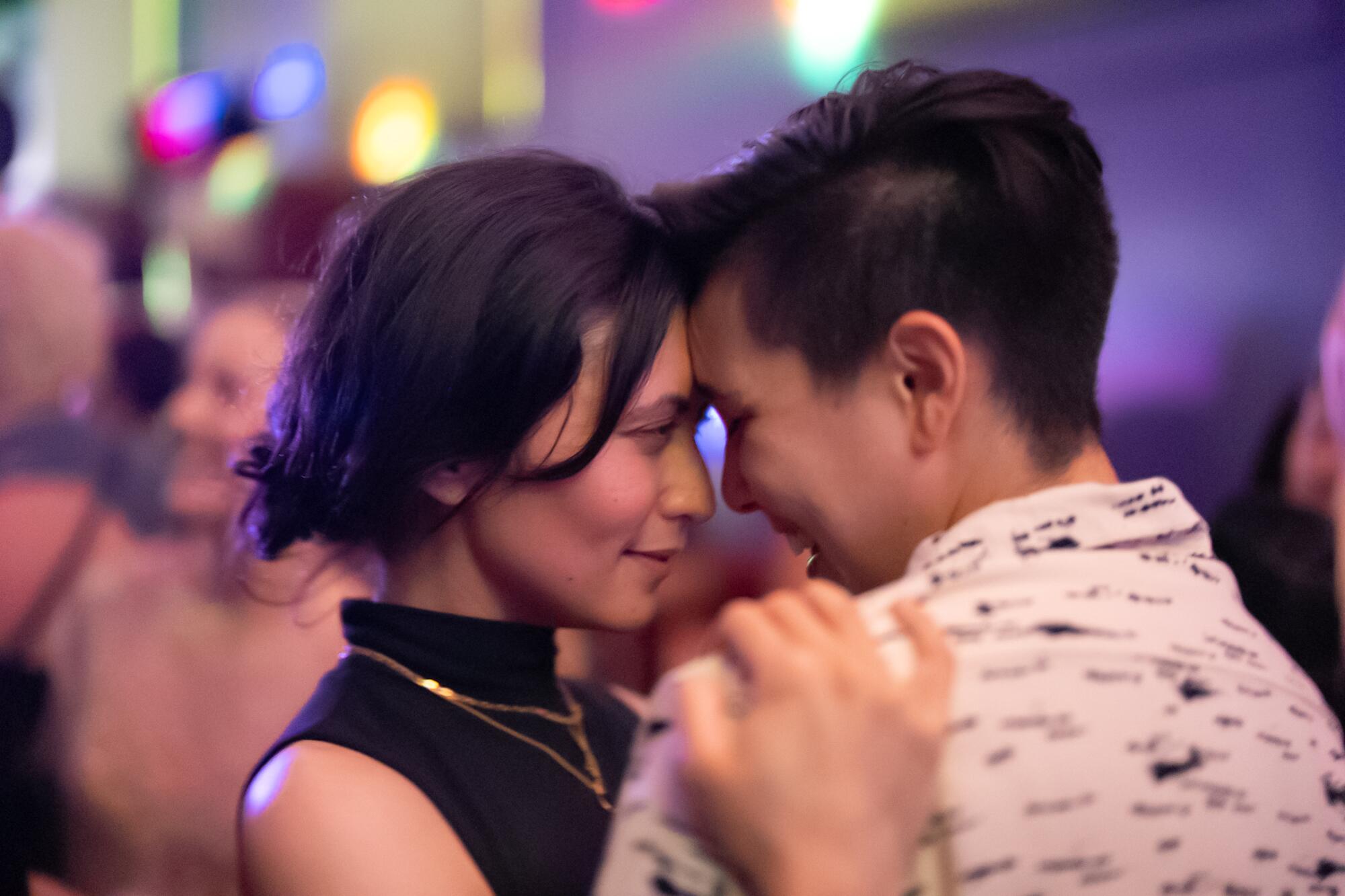
SAN FRANCISCO â It was Queer Prom night at Mother, a lesbian and femme queer bar in the Mission district, and the dance floor was crowded, hot and sweaty. Hits from the 1980s and â90s blared to a room of tulle gowns and tuxedos spinning under rainbow disco lights.
âEveryone showed up dressed to the nines. All the regulars that we see all the time put on their best clothes, they brought dates, they danced,â said Malia Spanyol, Motherâs owner, at last monthâs event. âIt was heartwarming.â
The evening represented everything Spanyol dreamed of when she opened Mother last year with hopes to revive a famed corridor of Valencia Street once home to a bounty of lesbian-owned businesses and bars.
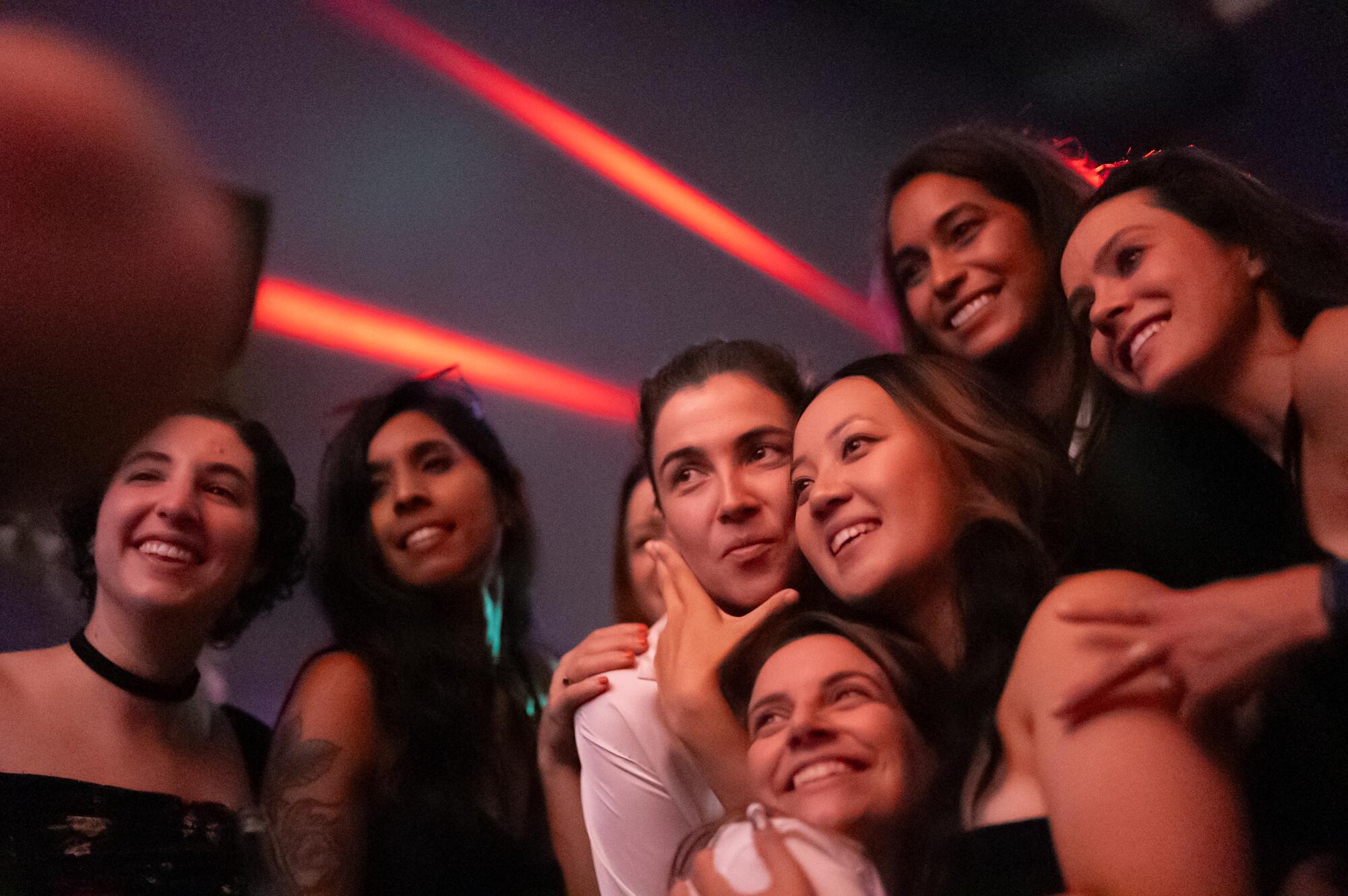
Many of those establishments shuttered over the last several decades, leaving only a handful of lesbian joints still open in San Francisco. Their closings reflect a worrying trend across the country, where fewer than an estimated three dozen bars catering specifically to lesbian clientele still remain open, according to the Lesbian Bar Project, which began tracking the endangered businesses in 2020 and produced a documentary about their struggles to stay open.
Even in San Francisco, once a bastion of now-closed lesbian bars like Maudâs and Lexington Club, only three venues are listed by the project: Wild Side West, which opened in 1962; Scarlet Fox wine bar, a relative newcomer to the city and Joleneâs, a club-like bar in the Mission.
The list does not yet include Mother, recently declared one of the best new bars in America by Bon AppĂŠtit.
Spanyolâs decision to open the business in early 2023 couldnât have come at a better time for San Franciscoâs queer community â and the city itself.
The office vacancy rate remains at a stubborn high of roughly 37%, and a slowdown in foot traffic and tourism since the pandemic, exacerbated by concerns over crime and homelessness, has led to a wave of downtown business closures.
LGBTQ+ San Franciscans are trying to change the cityâs fortunes â one queer-owned business at a time.
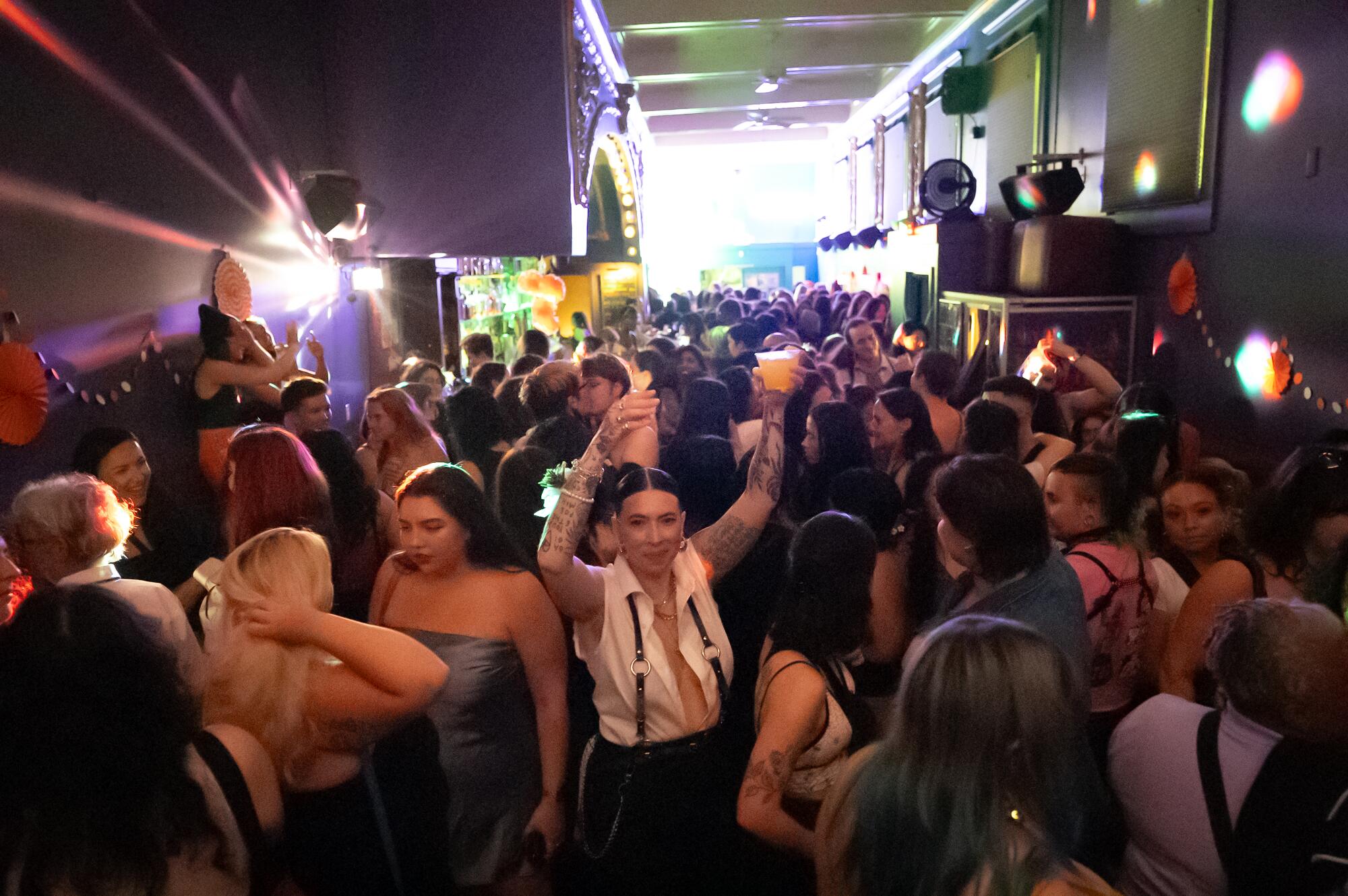
Their shared goal is to breathe new energy into a city that feels bland and where the women are tired â of men, politics and attacks on the LGBTQ+ community.
Spanyol â a veteran business owner in San Francisco who first came to the city in 1989 â is part of a network of queer women behind dozens of new restaurants, wine and cocktail bars, breweries and bagel shops.
Theyâve started surf clubs and lesbian kickball leagues, organized dodgeball tournaments and thrift-shopping parties, and reinvigorated the cityâs vibrant nightlife from the depths of the âdoom loop.â
So far, 2024 feels like the âYear of the lesbian,â said Angelina Polselli, director of community engagement for the Civic Joy Fund, a nonprofit that aims to support San Franciscoâs economic recovery through arts and entertainment.
Polselli plays in a kickball league with hundreds of players who compete during the day and then pack the bars at night. Polselli, who uses she/they pronouns, said itâs queer women and nonbinary people who have resuscitated the city after COVID.
Bucking the âdoom loopâ narrative, many tech entrepreneurs say San Francisco is still the âit cityâ for innovation and opportunity â especially with the rise of AI.
Itâs not that lesbians were previously limited to the shadows of San Franciscoâs queer culture, Polselli said. But at a time when womenâs rights and the LGBTQ+ community are under attack across the country, they said, their accomplishments matter even in liberal San Francisco.
âInstead of going into the shadows and into the closet, our response is like âF Uâ we are going to be even more out and proud, we are going to be as queer as queer can be,â she said.
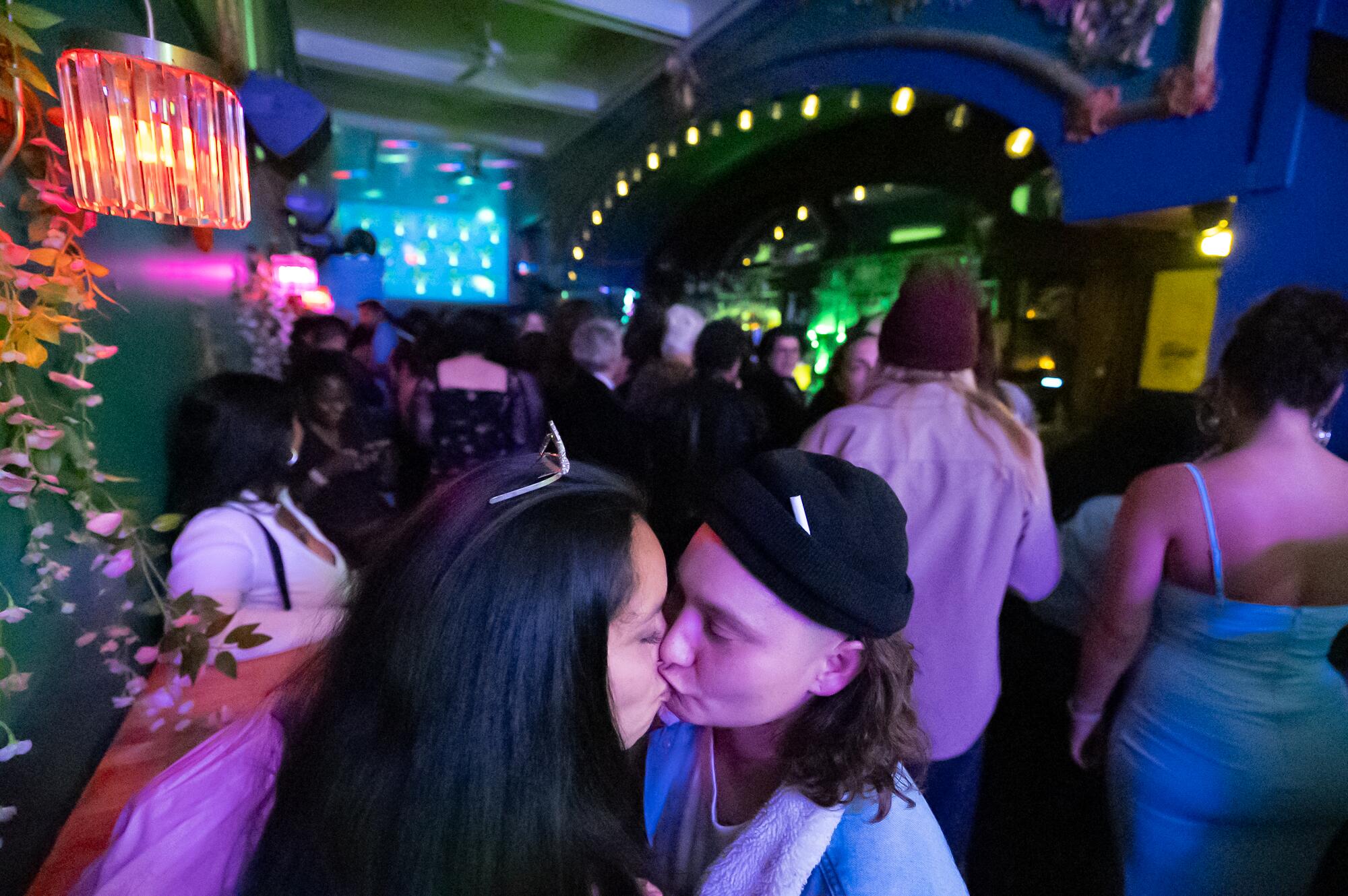
Last month, the Board of Supervisors declared San Francisco a sanctuary city for transgender people, adding to a guaranteed income program started in November 2022 that provides $1,200 per month to low-income transgender city residents. In May 2023, Mayor London Breed appointed DâArcy Drollinger as San Franciscoâs drag laureate, a first-in-the-nation initiative to highlight the cityâs LGBTQ+ arts, nightlife and entertainment cultures, according to an announcement of the appointment.
Drollinger, who owns the famed drag bar and nightclub Oasis, said queer San Franciscans are leading the cityâs resurgence because âitâs in our blood to sort of mobilizeâ and âtake care of each other and the community around us.â
âWeâve had to make our own path in the world and oftentimes not rely on anybody else but ourselves,â Drollinger said. âAnd because of that, there is a different kind of courage that weâve had to develop.â
Honey Mahogany, co-owner of the famed gay bar The Stud, which reopened at a different location this spring four years after it closed in 2020, said it feels good to see lines starting to form again outside queer bars and restaurants.
âThatâs what San Francisco night life used to be like,â said Mahogany, who also served as the chairwoman of the San Francisco Democratic Party and is currently the director of the cityâs Office of Transgender Initiatives. âIt not only obviously impacts those performers or venues or merchants, or whatever who are directly benefiting at that time. But it also helps change the narrative of San Francisco.â
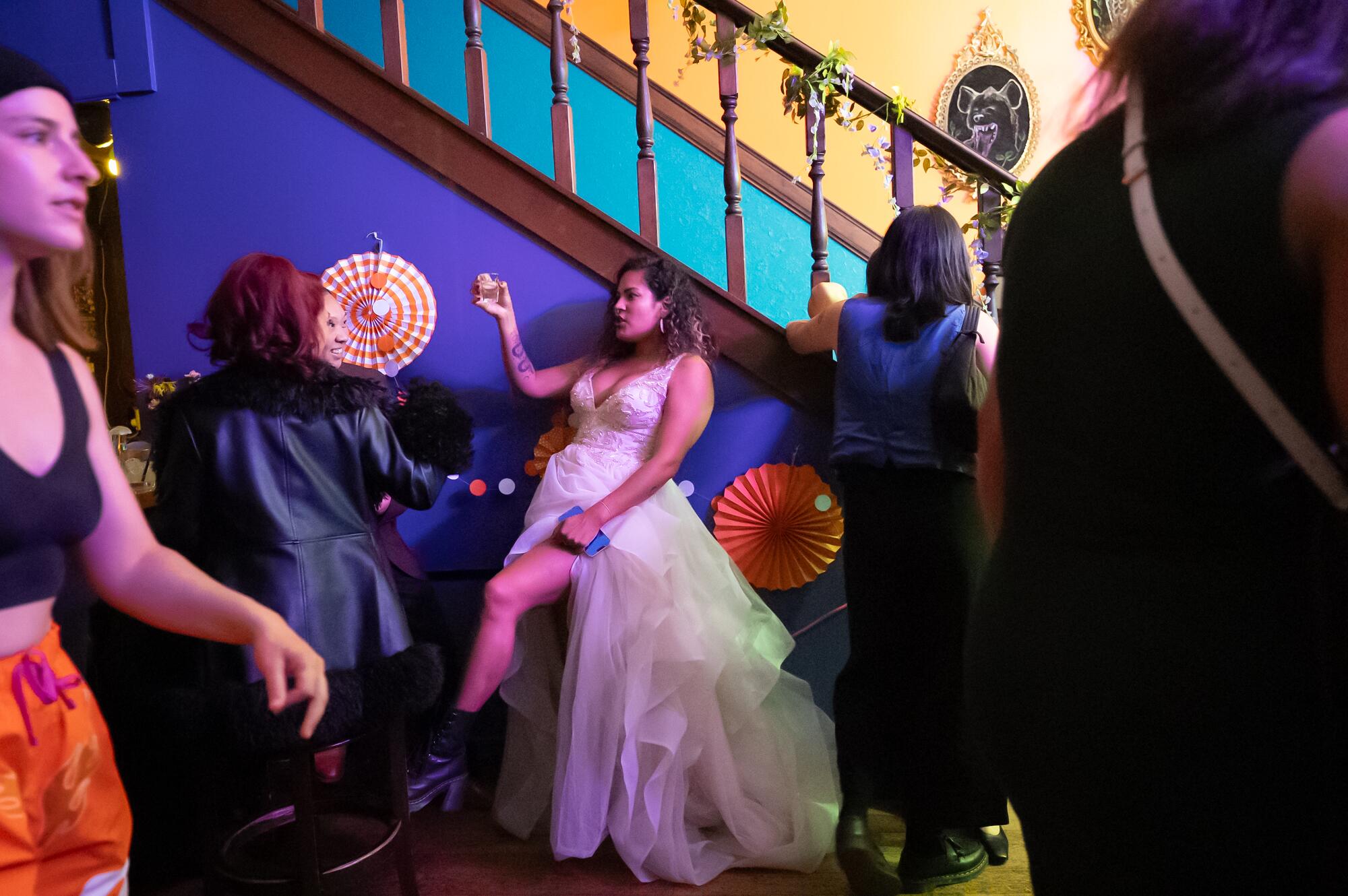
Still, some say itâs too early to claim victory for queer women.
San Francisco is one of the most visibly gay cities in America. But a queer woman hasnât served on the Board of Supervisors in more than a decade, and the city has never elected a lesbian mayor. Much of San Franciscoâs LGBTQ+ culture is dominated by white gay men, who hold some of the the most politically powerful positions in the city.
âIâm not going to say this is the year of the lesbian until we elect more lesbians to office,â said Kate Maeder, a San Francisco political consultant who co-owns Scarlet Fox wine bar with her wife, Kaela Miller. âI want to get all the high-powered lesbians in a room to conspire on making it a year of the lesbian.â
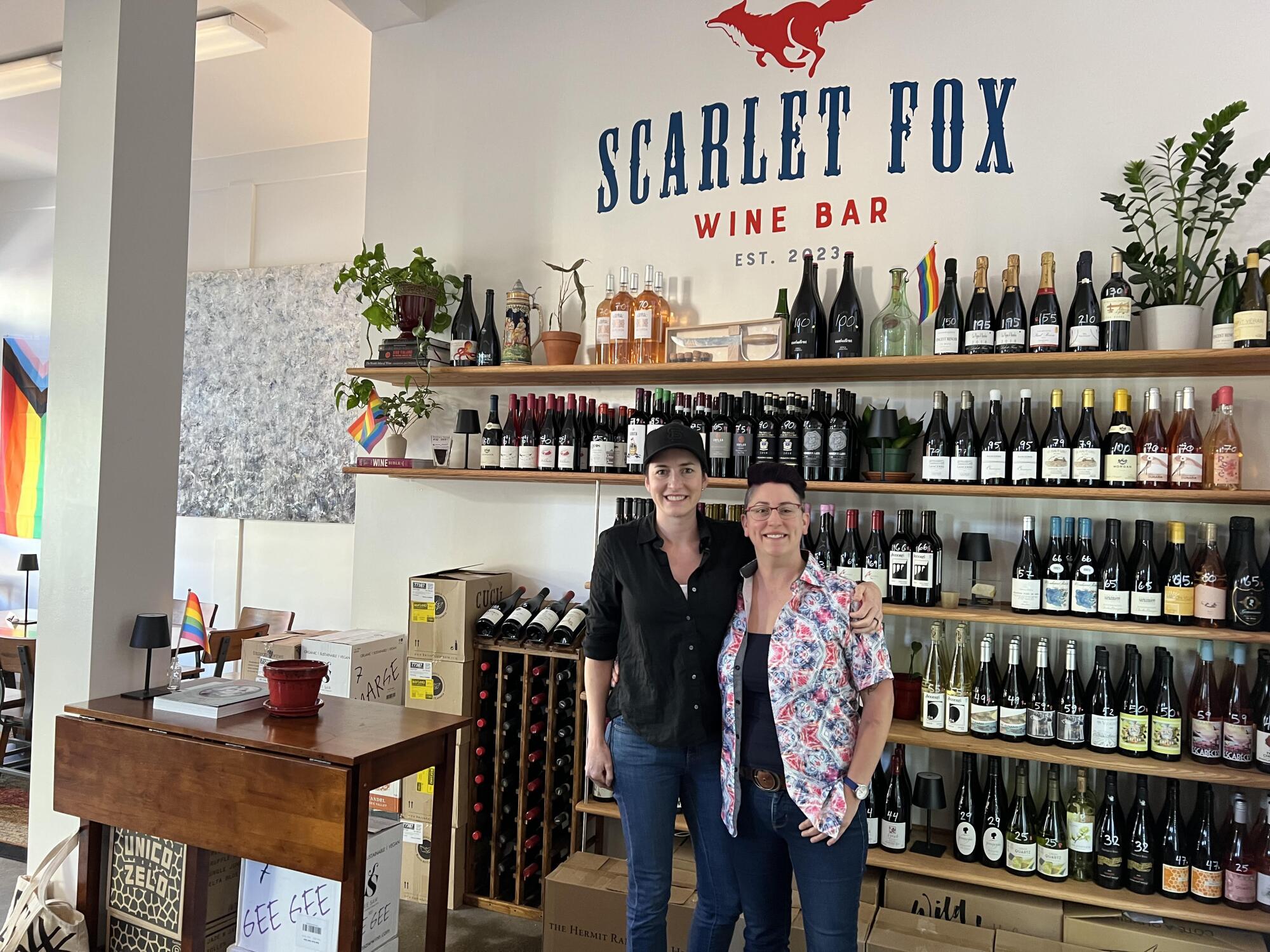
Maeder and Miller married in 2020 after meeting in 2015 at The Battery, a social club in San Francisco, where Miller was the sommelier. The two opened their wine bar on a quieter corner of the NOPA district in summer 2023 thanks in part to a city-run COVID recovery initiative for small businesses.
The couple set out to create a safe space for anyone looking for a welcoming spot to sit and enjoy a glass of wine. A cardboard, near life-sized cutout of Dolly Parton welcomes guests to the bar, recently decorated with a handful of rainbow flags for Pride Month.
âWe are really seeing these little beacons that are becoming much brighter lights all over the city, and I think itâs really because of the LGBTQ community,â Miller said.
Even as queer business owners aim to prop up San Francisco, many still feel like the city isnât doing enough to support them.
Suki and Katya Skye married in 2020 and opened their Eastern European restaurant DACHA in Lower Nob Hill about eight months ago with dreams to recreate the sense of sanctuary they found after landing in San Francisco many years ago. Suki came from the East Coast in search of a more open-minded environment, while Katya fled anti-LGBTQ+ laws in Russia.
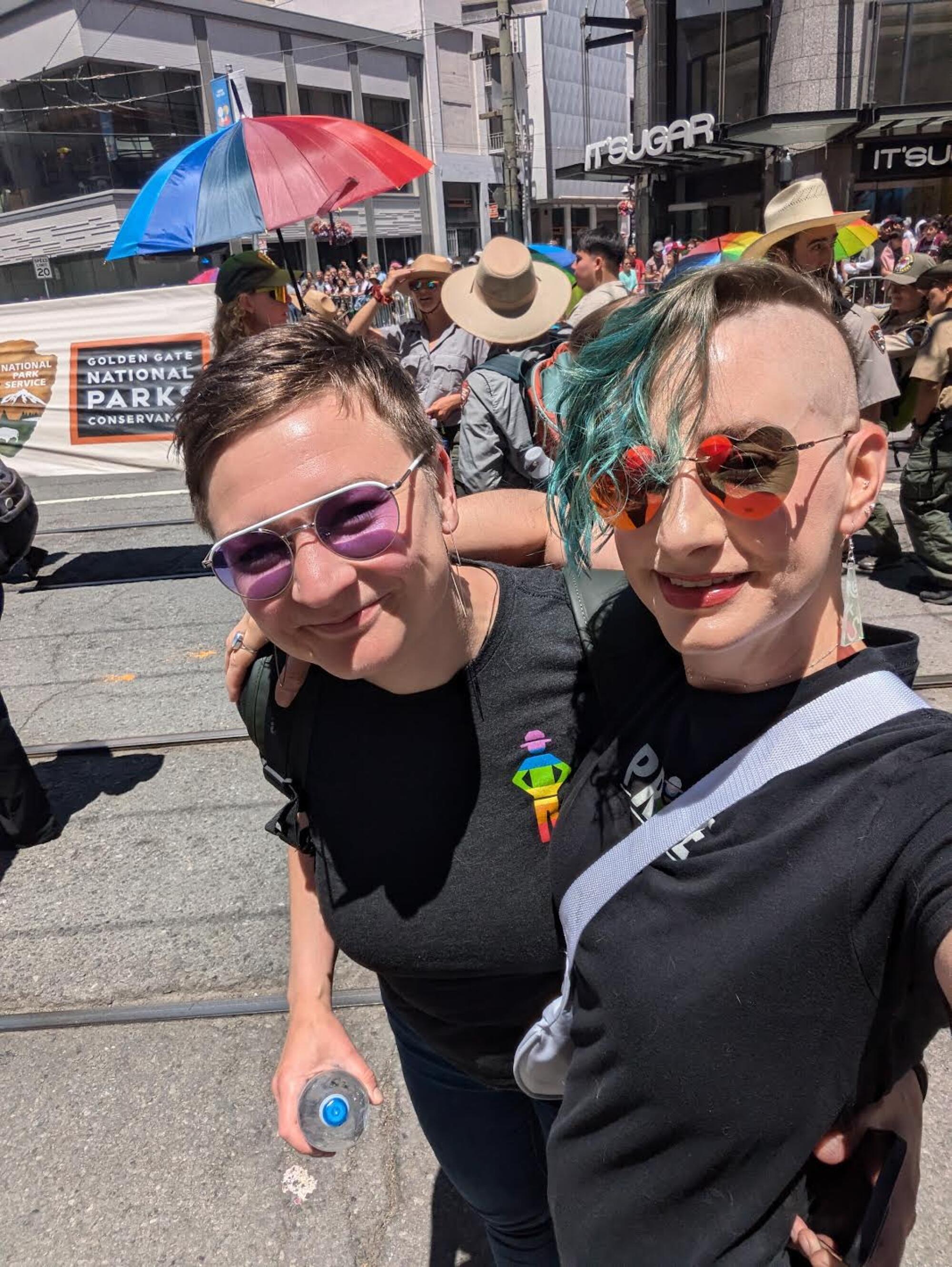
They wanted DACHA, named after Russian country cottages popular in the summer, to feel like everyoneâs living room. The dining room is decorated with Sukiâs fatherâs paintings, the exposed brick and bookcases creating a cozy interior for their guests. The couple has hosted a variety of charity events, recently one to benefit an organization providing medical aid during the war in Ukraine.
âOne of the missions of this restaurant is to get people together,â Katya Skye said. âDespite their sexual orientations, nationalities, and focus on things which unite us.â
But the couple said they are struggling to make the restaurant financially viable. Theyâre worried about money, about violent incidents in their neighborhood and keeping costs low despite paying tens of thousands of dollars in fees and taxes to stay up to code in a city notorious for red tape.
âItâs been rough,â Suki Skye said. The couple want to feel like theyâre making a difference with DACHA, but say they and other queer-owned businesses in San Francisco need the cityâs help to be successful.
âIt already has this amazing backbone of culture and people and the place itself, this like magical energy,â Suki Skye said. âI really want it to be its vibrant self again, or an even better version of what it was.â
More to Read
Sign up for Essential California
The most important California stories and recommendations in your inbox every morning.
You may occasionally receive promotional content from the Los Angeles Times.
